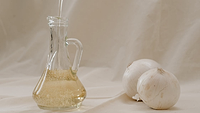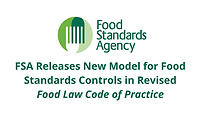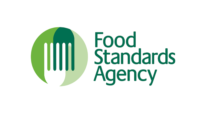The UK Food Standards Agency (FSA) has opened a public consultation on amendments to assimilated Regulation 2019/1793, which applies a temporary increase of official controls and special conditions to specified food and feed of non-animal origin that is imported to Great Britain from specified countries. Specifically, the amendments pertain to the regulation’s annexes, which list high-risk food and feed of non-animal origin subjected to enhanced border controls.
Most food and feed of non-animal origin can be imported into the UK without additional, enhanced controls. However, imports of higher-risk food and feed of non-animal origin from specified countries can only enter the nation through appropriately designated Border Control Posts (BCP) where official controls are undertaken, including documentary, identity, and physical examinations such as sampling. A high-risk product is food or feed that is identified as either a known or emerging risk, or because there is evidence of widespread, serious non-compliance with UK agrifood chain legislation. These risks and noncompliances may be due to the presence of pathogens, contaminants, and toxins.
Consignments of food and feed listed in Annex I of Regulation 2019/1793 are subject to a temporary increase of official controls at BCPs on entry into Great Britain at control points. Annex II sets out the list of consignments of food and feed from certain third countries subject to special conditions for the entry into Great Britain due to contamination risk by mycotoxins (including aflatoxins), pesticide residues, pentachlorophenol and dioxins, and microbiological contamination. Commodities listed in Annex I are temporarily controlled to help build a picture of whether more stringent measures might be required later. Therefore, any impacts are likely to be short term. Commodities listed in Annex II are more static in nature but are included in the biannual review, and once the level of risk changes, the level of control is amended.
Following a systematic risk analysis process, an expert working group recommended changes to the level of official controls for some food and feed from certain countries. FSA is seeking public comment on the following changes:
- Removing groundnuts from Brazil due to the presence of pesticide residues. Data obtained through FSA’s Early Warning System (EWS) and other notifications indicate that the level of risk has been significantly reduced.
- Subjecting four commodities originating from India to reduced checks, specifically: Guar Gum for pentachlorophenol and dioxins, nutmeg for aflatoxins, Capsicum peppers for aflatoxins, and Sesamum seeds for pesticide residues. Having already subjected these commodities to the highest level of enhanced controls over a number of years, FSA has gathered sufficient data suggesting that the level of compliance is improving.
- Subjecting two commodities—tea from China for pesticide residues and Sesamum seeds from India for Salmonella—to increased controls. These commodities have been subjected to monitoring and surveillance at British border control posts over several years, and data indicate that levels of noncompliance are not improving.
- Introducing 15 new commodities identified as higher risk through EWS and other data sources, subject to a proportionate level of monitoring at border control posts to gather evidence that will be used to decide for each commodity whether to remove enhanced controls or increase checks. The 15 commodities are: Mixture of nuts, hazelnuts paste, and hazelnut oil from Georgia for aflatoxins; cumin seeds, cumin seeds crushed or ground, fenugreek leaves, and yardlong beans from India for pesticide residues; basil and mint from Israel for pesticide residues; mukunuwenna from Sri Lanka for pesticide residues; grapefruits from Turkiye for pesticide residues, as well as Sesamum seeds and tahini and halva from Sesamum seeds from Turkiye for Salmonella; groundnuts paste from Madagascar for aflatoxins; and groundnuts paste from Argentina for aflatoxins.
- Updating the codes for three commodities—hazelnuts otherwise prepared or preserved, including mixtures from Georgia for aflatoxins; granadilla and passion fruit from Colombia for pesticide residues; and bananas from Ecuador for pesticide residues—which will extend the range of commodities that are subject to checks at the border.
The main benefit of the changes is in the reduction in the risk to public health, as the controls are targeted and risk-based. The public consultation is open until April 25, 2024.




